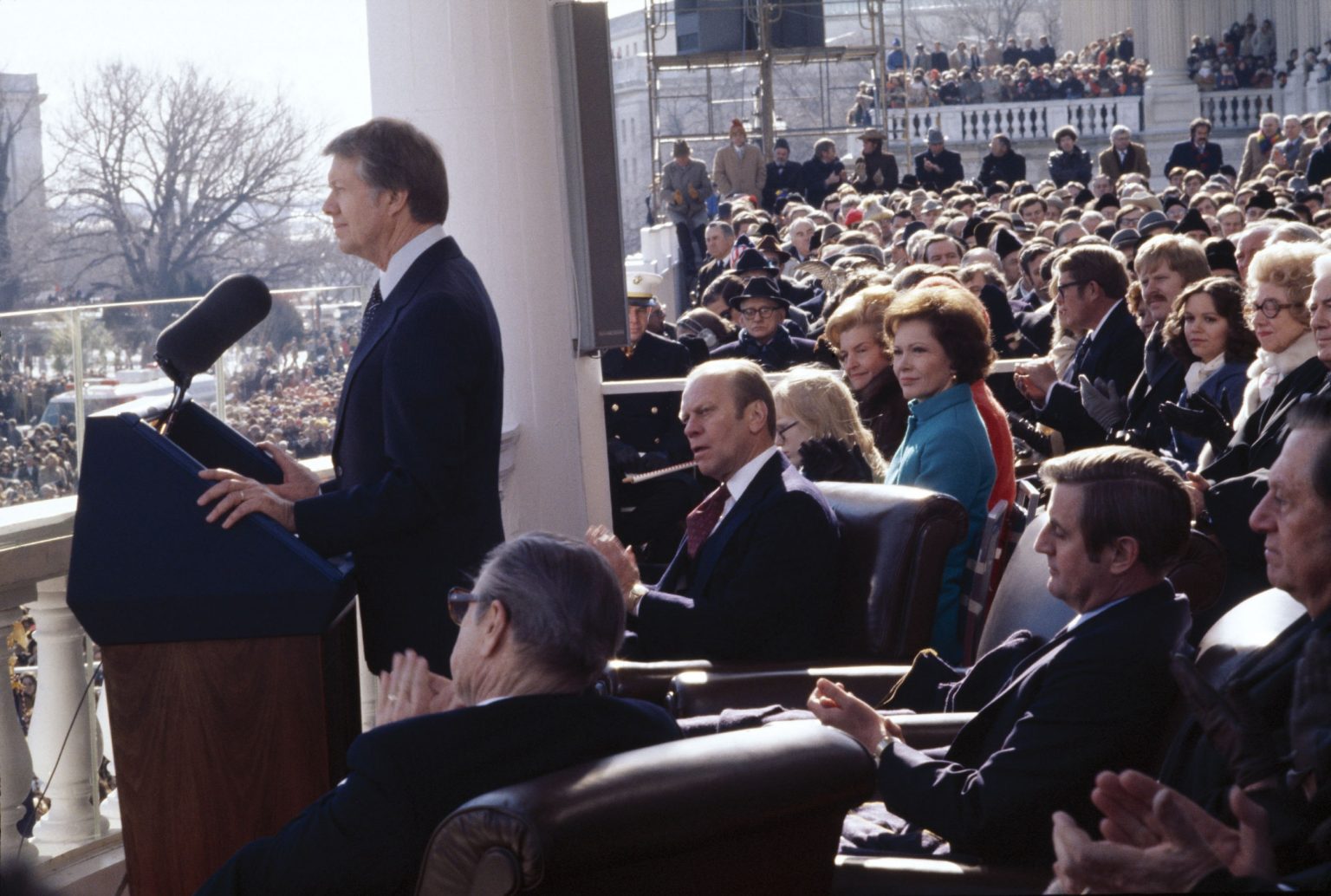Jimmy Carter’s historic journey from a small town in Georgia to the most powerful job in the world culminated in his election as President of the United States in 1976. Despite a close race with Gerald Ford, Carter secured a majority of the popular vote and electoral college, resolidifying the Democratic South and ending the Republican hold on the White House. Ford’s concession marked the end of his accidental presidency, as he gracefully accepted Carter’s victory and offered his support.
Carter’s mandate to govern was shadowed by his slim winning margin and lingering public unease about his character and policies. Despite doubts about his trustworthiness, Carter mobilized traditional Democratic voters in the South and industrial North and won key demographics such as black voters, union members, and hyphenated Americans. The election results left the Republicans in disarray, with the party facing a need for new leadership and a broader base. Carter’s challenge would be to overcome skepticism and unite a wary Congress behind his administration.
Ford’s strategy of focusing on portraying Carter as unfit for office through the Rose Garden strategy ultimately fell short in the face of the overwhelming support and turnout for the Democratic candidate. Carter’s victory was a testament to the enduring strength of the Democratic coalition and traditional party values. The Republican party, on the other hand, faced a moment of reckoning, with calls for a fresh start and new faces to lead the party into the future.
As Carter prepared to assume the presidency, he faced the challenge of filling key cabinet positions and establishing his administration. His shadow government in Plains would transition to Washington, with the expectation that he would promptly name a Secretary of State to signal his interest in foreign affairs. The transition period would be crucial for Carter to prepare for the responsibilities of the presidency and demonstrate his readiness to lead the country.
Despite the bitter feelings and challenges ahead, Carter’s emotional homecoming to Plains marked the beginning of a new chapter in American history. With untried skills in statecraft and a slender mandate, Carter faced an uphill battle in proving his leadership abilities. His journey from Plains to the White House was just the beginning of his legacy, as he prepared to take on the role of President and navigate the complex challenges facing the nation in the years to come.








